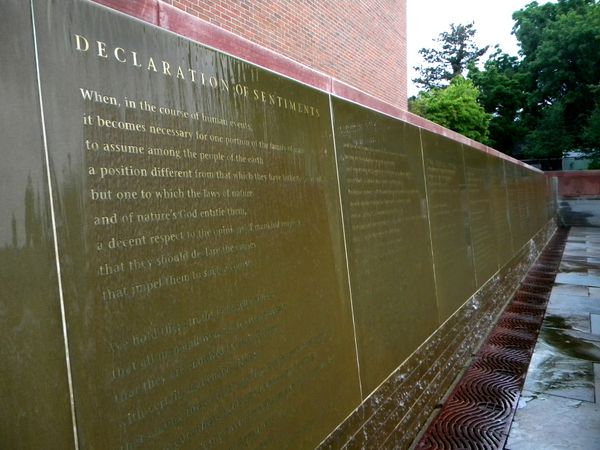In recent months, the United States and Europe have borne witness to numerous and very public instances of Arabic speakers caught reading, writing, or speaking the language in airport environments detained or interrogated as inherently suspicious due to their linguistic association. Even more disturbingly, oftentimes those who tip off security personnel regarding a supposed "threat" are not even remotely familiar with Arabic at all and have no idea what is being said or written. The foreign sounds and swoopy alphabet are enough to inspire fear.
These instances are symptomatic of a far larger problem than Islamophobia; in fact, they indicate a disturbing trend among Americans to treat every individual as a potential danger, regardless of common sense. It is natural, especially in highly active places such as airports, to air on the side of caution regarding security -- everything remotely threatening should warrant investigation, for the sake of the common good. The problem is not the citizen vigilance which keeps us safe, but the fact that even the most everyday, mundane, or limited use of the Arabic language is viewed by so many as inherently suspect.
This is not a trend we have seen with other foreign languages. It is undoubtedly connected to the meteoric rise in terrorist attacks in the West with their roots in Middle Eastern countries. But that doesn't make it any less indicative of an epidemic American ignorance, a gross mis-ordering of priorities. Languages we do not understand have the power to terrify us into a state of perpetual anxiety, and yet we do absolutely nothing to rectify the problem. We fear Arabic because it represents our greater fear of terrorism, and in equating the language with the enemy we annihilate our ability to defeat it.
Words are not a threat. There are far more accurate indicators of potential danger than the language in a notebook, glimpsed in passing at Starbucks. The threat is our total fear of foreign languages, born from the lack of any concentrated effort by the educational system to encourage bilingual education. The threat is the teachers who actively discourage their students from studying foreign languages because they are "too difficult," who tout that their country of residence makes them unnecessary. The threat to us comes from a system of knowledge where bilingualism is the exception, and in the case of Arabic speakers is a pernicious exception, not the norm. We don't view languages as conduits for communication; we see in them inhibitors because we have never been taught otherwise.
So I don't blame Islamophobia or racism for the woman who cried "ISIS!" on a benevolent Arabic-speaking college student in an airplane. I blame a system which places its citizens in a vacuum so tight that the world beyond it slips slowly away from them until it is so unreachably distant that it is terrifying. I blame an educational culture that consistently devalues foreign language study, and I blame the voices that call foreign travel and exchange wasteful, inappropriate, and anti-American. We do not need to sacrifice security on the altar of greater understanding. We require international understanding to secure our future, and the future of our country.





















